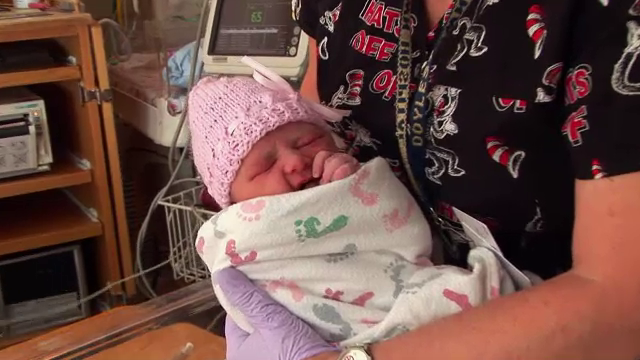“The Time Was Right to Revisit This Issue”: Behind the Scenes of “The Vaccine War”

March 24, 2015
Share
When Jon Palfreman and Kate McMahon began reporting on the vaccination debate back in 2010, doctors and public health officials warned them that growing skepticism about vaccines could enable the return of preventable diseases once thought to be eliminated.
Now, those warnings appear to be coming true, with measles, mumps and whooping cough all making a comeback — and Palfreman and McMahon have teamed up again to illuminate the latest chapter in the heated controversy.
“With the Disneyland measles outbreak making headlines, the time was right to revisit this issue,” Palfreman says.
“There’s a lot of competing information out there right now, and it’s deeply emotional on both sides,” McMahon says. “We wanted to give people the comprehensive backstory and history of how this debate evolved.”
“We wanted to give people the comprehensive backstory and history of how this debate evolved.”That’s exactly what they’ve done in the newly updated version of The Vaccine War that premieres March 24 on PBS and online. Drawing on interviews with parents and advocates on both sides of the issue, as well as doctors, leading scientists and public health experts, the documentary is a powerful look at why there is still fear about vaccines despite established scientific consensus that there is no link between vaccines and disorders like autism.
Palfreman and McMahon, both based in Oregon, have partnered to make documentaries involving the intersection of science, public health, and health care in the past, including FRONTLINE’s Sick Around the World and Sick Around America.
But making The Vaccine War was a unique journey: When McMahon first began reporting on the battle about childhood vaccinations, she had just become a parent herself. The vaccine issue was personal for Palfreman, too. Growing up in England, before there were vaccines for pertussis, measles, mumps and rubella, Palfreman had been sick with all four diseases.
“It wasn’t pleasant,” he says. “But now, experts we’ve talked to say that the balance between fear and risk has shifted. As one ethicist told us, ‘vaccines have become a victim of their own success.’ Young parents have no experience with these diseases.”
That scarcity initially presented Palfreman and McMahon with a filmmaking challenge: How to illustrate what vaccine-preventable diseases look like in a way that feels current, rather than relying on archival black-and-white footage?
As it turns out, the solution came when McMahon was in the exam room with her young daughter on a visit to the pediatrician.
“I mentioned that we were looking for modern footage of diseases like polio, and asked her if she knew of anyone with such footage,” McMahon says. “She said, miraculously, ‘I do — and she’s here in Portland.”
That doctor was Cynthia Cristofani, a pediatric intensivist who had decided earlier in her career to document the rare cases of vaccine-preventable illness that turned up in her intensive care unit, and use that footage to help train young doctors. Cristofani shared her footage with McMahon and Palfreman, and it makes up some of The Vaccine War’s most striking moments.
Growing up in England, before there were vaccines for pertussis, measles, mumps and rubella, Palfreman had been sick with all four diseases.Another challenge McMahon and Palfreman faced was explaining the complicated concept of “herd immunity” — the idea that if enough people in a community are vaccinated, they provide a bulwark of immunity for those who are too young, too old, or too weak from things like chemotherapy to be vaccinated themselves.
“At the time, public health officials were really struggling to explain this concept, too,” Palfreman says.
But suddenly, the ongoing measles outbreak linked back to Disneyland — the scope of which, public health experts say, is due to a drop in herd immunity caused by pockets of parents choosing not to vaccinate their children — made the concept easier to illustrate than ever before.
“Here was a disease which people had thought was wiped out 15 years ago, and now it’s coming back and spreading across the entire country,” Palfreman says. “Now, people could talk about the consequences and identify the victims — children with vanished immune systems who might be victims of a different parent’s decision not to vaccinate.”
Children like seven-year-old Rhett Krawitt of Marin County, California, who is featured in the updated Vaccine War documentary. He’s lived with leukemia for most of his young life. Ninety percent of cases like his are eventually fully cured, but the treatment wipes out the immune system, making vaccinations impossible.
“That means that, for now, Krawitt relies on herd immunity — the other students at his school being vaccinated — for his life,” McMahon says. “He’s become a poster boy in the unfolding legislative battle in Northern California over personal belief exemptions.”
The public opinion pendulum, Palfreman and McMahon say, is likely to continue to swing. And ultimately, they hope people who watch The Vaccine War will make up their own minds.
“Our job isn’t to convince people one way or another,” Palfreman says. “It’s to do the reporting, to analyze the science and the facts that are out there, and to present it all in a way that’s trustworthy and comprehensive.”

Related Documentaries
Latest Documentaries
Related Stories
Related Stories
Explore
Policies
Teacher Center
Funding for FRONTLINE is provided through the support of PBS viewers and by the Corporation for Public Broadcasting, with major support from Ford Foundation. Additional funding is provided the Abrams Foundation, Park Foundation, John D. and Catherine T. MacArthur Foundation, Heising-Simons Foundation, and the FRONTLINE Trust, with major support from Jon and Jo Ann Hagler on behalf of the Jon L. Hagler Foundation, and additional support from Koo and Patricia Yuen. FRONTLINE is a registered trademark of WGBH Educational Foundation. Web Site Copyright ©1995-2025 WGBH Educational Foundation. PBS is a 501(c)(3) not-for-profit organization.





















